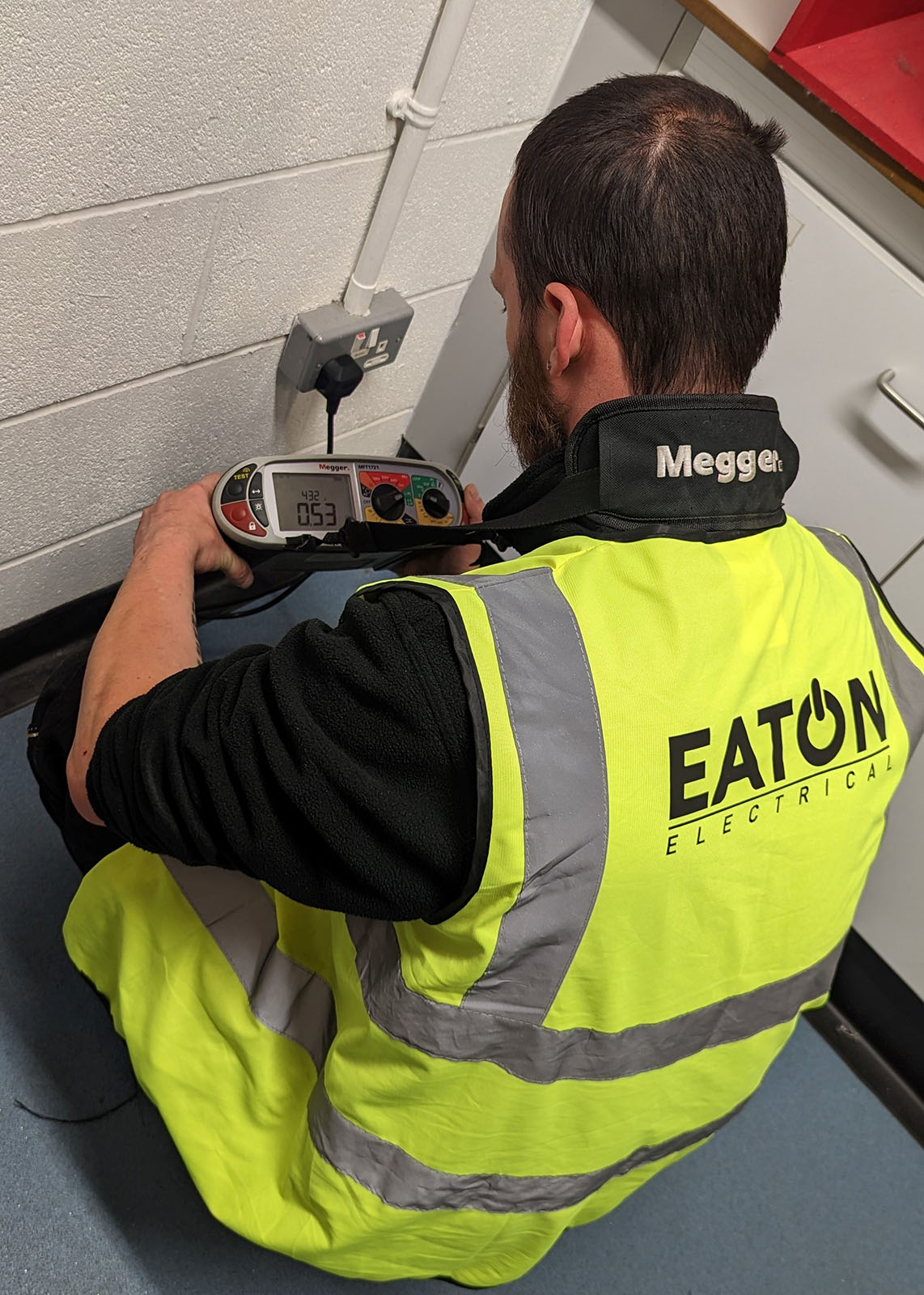Electrical Inspection and Testing
Eaton Electrical offers a full range of electrical inspection and testing services that are carried out in accordance with BS7671 guidelines and independently verified by the NICEIC.
- Electrical Installation Condition Reports (EICR)
- Fault Finding
- Data Logging
- Thermal Imaging
- Data Network (Fluke DTX1800)
Spread the cost of your electrical testing
Instead of a costly installation test covering your entire installation, why not give us a call to discuss the option of spreading your testing obligations over a 3-5 year period?
F.A.Q.
Frequent Questions
Why have your electrics tested?
All electrical wiring deteriorates over time; it is essential to test all fixed wiring regularly to ensure complete compliance with the Electricity at Work Regulations 1989, provide a safe working environment, and mitigate the risk of nuisance outages. Electrical inspection and testing identifies deficiencies in an electrical installation before they become serious hazards.
The Electricity at Work Regulations 1989 places a ‘duty of care’ on employers and landlords to maintain electrical systems in a safe condition for continued use. The best way to comply with this is to undertake periodic electrical testing at the intervals recommended below.
Your electrical inspection and testing will explore and identify the following points;
- Circuits or equipment that is overloaded
- Detect any potential electric shock risks
- Discover any fire hazards in your electrical installation
- Identify any defective DIY electrical work
- Reveal any lack of protective bonding
- Detail the type of wiring and its condition
- Check the suitability of equipment
What happens after the electrical inspection?
Following the issue of your report, we will provide you with a separate quotation for any remedial work that may be required to raise your installation to a satisfactory standard. It is recommended that all C2 categorised points are rectified as soon as possible to ensure safety. C3 categorised points can be addressed as part of your on-going maintenance schedule.
When remedial work is complete, you will be issued with a further PDF report detailing any changes.
How often should you have an electrical inspection?
The IET recommends the maximum period between inspections is;
- Domestic Premises – 10 years
- Commercial Premises – 5 years or change of occupancy
- Residential Accommodation – 5 Years
- Buildings open to the general public – 3 Years
- Industrial Buildings – 3 Years
- Special Locations – 1 to 3 Years dependent on level of risk
Your electrical inspection and testing report
The results of our electrical inspection and testing will be recorded on the appropriate forms and issued in the form of a PDF document. Any deviations and recommendations will be recorded and clearly understandable. You will also be issued a photographic record of any discrepancies.
In the case of the EICR, any discrepancies will be classified as follows;
- C1 – Danger Present – Immediate remedial action required (The circuit will be isolated during the investigation if issues of this severity are found)
- C2 – Potentially Dangerous – Urgent remedial action required
- C3 – Improvement Recommended
Testimonials
I have used Eaton Electrical for the past 15 years, and they have always provided an excellent service at a competitive price. With their expertise in all areas of Maintenance, they provide the full solution from small projects, through to larger ones. Highly Recommended
I can say without exception, that Eaton Electrical Ltd have continuously provided an excellent service with exceptional high standards. I cannot fault their continued efforts to maintain and improve standards working very closely with the client.
Address
61 North Street,
Barrow Upon Soar,
Loughborough,
Leicestershire,
LE12 8PZ
Phone
01509 414222

